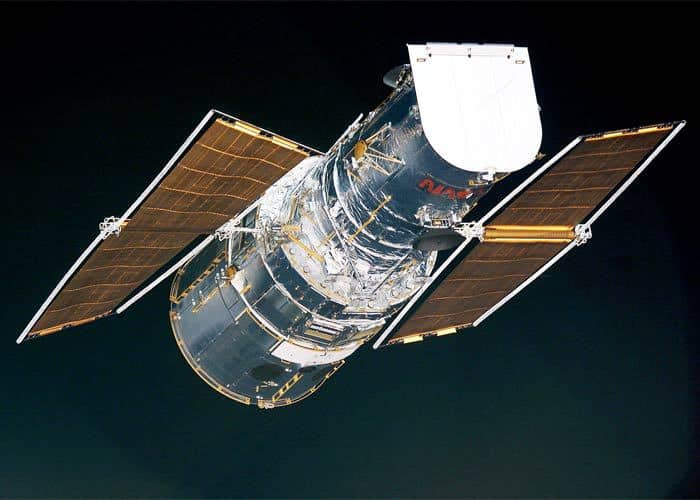Feb 4, 2005 (AXcess News) Washington – Members of Congress examined several plans earlier this week for the future of the Hubble Space Telescope, one of the American space program’s most successful operations.
A panel of aerospace and physics experts at a House Committee on Science hearing offered their opinions – some starkly opposed to others – on how to extend the orbiting telescope’s lifespan, replace it or simply let it die. The telescope’s ability to operate could end as early as 2007 if it is not serviced.
President Bush last year proposed eliminating money to keep Hubble in orbit, but Congress returned money to the budget. Several recent published reports say Bush will again propose cutting Hubble money in favor of missions to the moon and Mars when he unveils the 2006 budget next week.
One plan is to send a manned shuttle mission to the telescope. Another involves an unmanned robotic mission. Both would extend Hubble’s life by three to five years.
A third possibility is to send new equipment now intended for Hubble into space on a new satellite with at least a five-year life.
A final option is to not service Hubble at all. The final step in any of the plans is a robotic de-orbiting mission that would bring Hubble safely out of orbit to land in an unpopulated area.

Committee Chairman Rep. Sherwood Boehlert, R-N.Y., opened the hearing with a tone of optimism.
“I would dearly love to save the telescope. It has outperformed everyone’s fondest hopes and has become a kind of mascot for science, maybe even our planet. One can’t help but root for it,” he said. “We have to make hard choices about whether a Hubble mission is worth it now, when moving ahead is likely to have an adverse impact on other programs.”
Lou Lanzerotti, chairman of the Committee on the Assessment of Options for Extending the Life of the Hubble Space Telescope, said he supported a manned mission and said a robotic mission might be unable to cope with unforeseen difficulties.
“The important strength of a shuttle mission is that it has been done before, four times in fact,” said Lanzerotti, a professor at the New Jersey Institute of Technology.
Hubble was designed to be serviced by astronauts periodically, Lanzerotti said. The mission that would have extended the telescope’s life was scheduled for last year but was delayed when the National Aeronautics and Space Administration suspended shuttle missions after the Columbia disaster Feb. 1, 2003. NASA plans to restart the shuttle program in May.
In the meantime, NASA has studied a robotic mission, and an official from the company developing the robotic arm for such a mission argued it is not risky.
“Look at the track record of robotic missions. Twenty-five years, 69 missions and not a single mission failure,” said Paul Cooper, vice president and deputy general manager of MD Robotics.
Cooper also contested other witnesses’ claims about the cost and time frame for a robotic mission. The independent Aerospace Corp. estimated it could cost more than $2 billion and not be ready for more than five years, while Cooper said the mission would cost $1.3 billion and be ready in half that time.
The experts argued over the value of robotic development, which Cooper said could extend to other government space projects. Lanzerotti said Hubble should not be used as “target practice” for robotic development.
Rep. Dana Rohrabacher, R-Calif., however, said Hubble’s value does not exceed that of human life.
“To the degree that we do not have to use the shuttle, we should not use the shuttle. Some people want to dive back into use of the shuttle as if those two catastrophic accidents didn’t happen,” he said, referring to Columbia and the 1986 Challenger explosion.
Discussion also included the potential Hubble Origins Probe, a new telescope that would be larger but would focus on fewer projects. The new telescope would not be launched until three to five years after Hubble’s anticipated demise.
Absent from the hearing were any NASA officials. Boehlert said they were not asked to come because the Bush administration has not yet released its proposed 2006 budget.
Rep. Mark Udall, D-Colo., said he was encouraged, however, by the day’s testimony.
“The tone of this hearing is not if we’re going to save Hubble but when and how. We’ve never had a hearing about saving a satellite. Usually they’re allowed to die, so I think that speaks volumes about the importance of this instrument,” he said.



